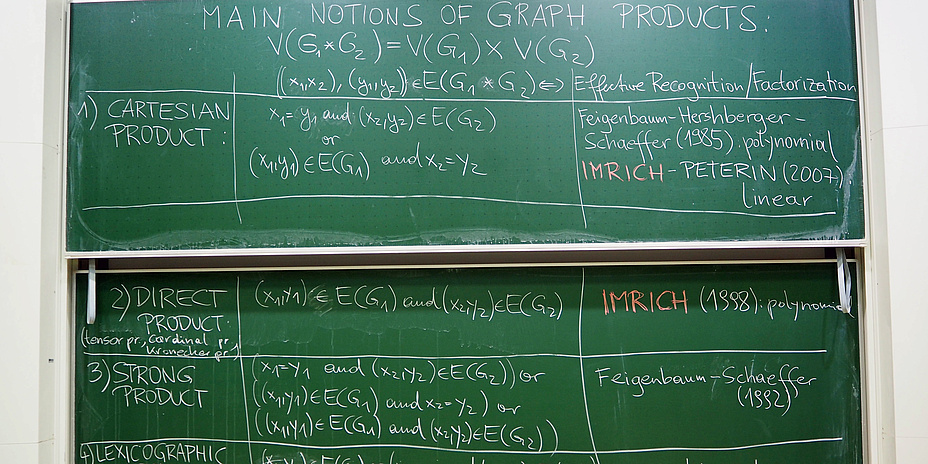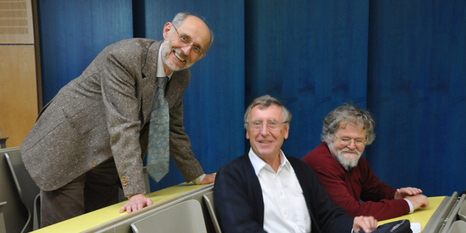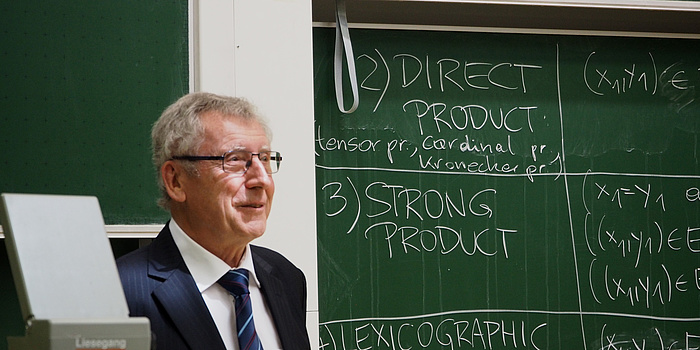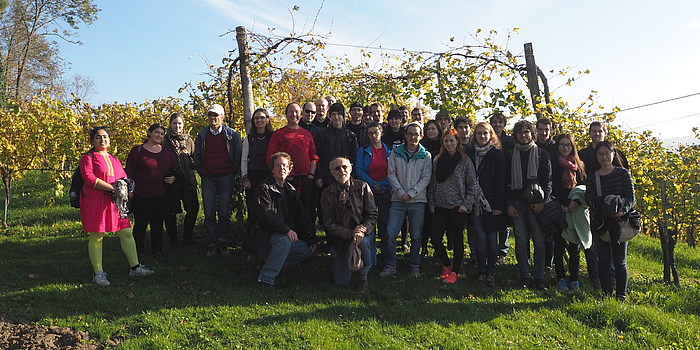Not At All Discrete

Discretus
The term for this research area is derived from the Latin “discretus” – the perfect participle of “discernere”. It means to isolate, to distinguish, to separate. It’s thus the opposite of “continuous” and ist synonym “constant”. In other words, changeable. And discrete mathematics is based on this distinction. Combinatorial analysis, graph theory, number theory and probability are some of the keywords of this discipline. Areas of application include cryptography to secure electronic systems, among other areas.Doctoral programme
While cryptography is closely interwoven with discretion, the three Styrian universities, in contrast, don’t make a secret of their activities. Together they established a doctoral programme whose main financial backer is the Austrian Science Fund (FWF) – with active support from the three involved universities. The doctoral programme is an excellence initiative in the field of discrete mathematics and is headed by Wolfgang Woess.
Alumni
If you take a quick look at the careers of the programme’s graduates – more than a third of whom are women – nothing should stand in the way of the programme being extended. The doctoral students of the first generation can be found in well-known positions all over the world: in famous universities in the USA, Canada and Paris – Johns Hopkins University, Warwick, Birmingham and in many other eminent tertiary educational institutes.

Support
Another factor of success is the intensive supervision of the budding mathematicians by the pool of professors in the faculty. “We support them, but we make demands on them, too. We place great value on the creativity of the doctoral students, especially when it’s a matter of developing new research approaches and introducing new ideas about how to achieve new results,” stresses Woess. “We expect a certain amount of cleverness!” Which in the best cases leads even experienced professors to stand back in admiration of a student. “That’s obviously the best thing, what we want – and sometimes it’s fulfilled,” he says, paying respect to a number of younger mathematicians. Incidentally, almost half of the mathematicians come from Austria. The other half first and foremost come from the rest of Europe, but some come from China, South Korea, New Zealand and the USA as well as Africa. They have gone through a hard selection procedure by the time they have been accepted into the doctoral degree programme. The first rounds consisted of some 150 applicants who have a master’s degree in mathematics or a degree where they majored in mathematics. After the preliminary selection was carried out on the basis of the application documents, some 50 were invited to a hearing, of whom 20 entered the programme.
This research project is attributed to the Field of Expertise <link https: www.tugraz.at en research fields-of-expertise information-communication-computing overview-information-communication-computing _blank int-link-external external link in new>„Information, Communication & Computing“, one of TU Graz' five strategic areas of research.
Visit <link https: www.tugraz.at en tu-graz services news-stories planet-research all-articles _blank int-link-external external link in new>Planet research for more research related news.




